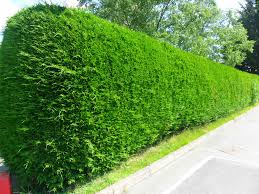hedge
英 [hedʒ]
美 [hedʒ]
- vt. 用树篱笆围住;避免作正面答复
- vi. 用树篱围住;避免作正面答复
- n. 树篱;障碍
- n. (Hedge)人名;(英)赫奇
使用频率:

记忆方法
1. home + edge => 家园的四周肯定是用树篱、篱笆围起来。
中文词源
hedge 树篱,拐弯抹角
来自古英语hecg,篱笆,篱笆墙,来自PIE*kagh,编织,抓住,围住,词源同hag,haw.后用于指树篱,引申词义缓冲,防备,拐弯抹角等。
英语词源
- hedge
-
hedge: [OE] Hedge traces its ancestry back to a prehistoric Germanic *khag-, which also produced the haw of hawthorn and possibly haggard and quay too. From it was derived the West Germanic noun *khagjō, which has since become differentiated into German hecke, Dutch heg, and English hedge. The compound hedgehog, an allusion to the animal’s piglike nose, dates from the 15th century (porcupine, literally ‘pig spine’, conveys much the same idea).
=> haggard, hawthorn, quay - hedge (n.)
- Old English hecg, originally any fence, living or artificial, from West Germanic *khagja (cognates: Middle Dutch hegge, Dutch heg, Old High German hegga, German Hecke "hedge"), from PIE *kagh- "to catch, seize; wickerwork, fence" (cognates: Latin caulae "a sheepfold, enclosure," Gaulish caio "circumvallation," Welsh cae "fence, hedge"). Related to Old English haga "enclosure, hedge" (see haw). Figurative sense of "boundary, barrier" is from mid-14c. Prefixed to any word, it "notes something mean, vile, of the lowest class" [Johnson], from contemptuous attributive sense of "plying one's trade under a hedge" (hedge-priest, hedge-lawyer, hedge-wench, etc.), a usage attested from 1530s.
- hedge (v.)
- late 14c., "make a hedge," also "surround with a barricade or palisade;" from hedge (n.). The sense of "dodge, evade" is first recorded 1590s. That of "insure oneself against loss," as in a bet, by playing something on the other side is from 1670s, originally with in; probably from an earlier use of hedge in meaning "secure (a debt) by including it in a larger one which has better security" (1610s). Related: Hedged; hedging. The noun in the wagering sense is from 1736.
权威例句
- 1. Hawker Siddeley tried to hedge its bets by diversifying into other fields.
- 霍克·西德利试图通过在其他领域进行多样化发展来规避风险。
- 2. You can hedge against redundancy or illness with insurance.
- 可以购买保险以防失业或患病。
- 3. I saw an old man out clipping his hedge.
- 我看见一位老人在外面修剪树篱。
- 4. Some 300 trees have been ranged along the perimeter hedge.
- 沿着绿篱栽种着大约300棵树。
- 5. The garden was enclosed by a privet hedge.
- 这个花园用女贞树篱圈了起来。
